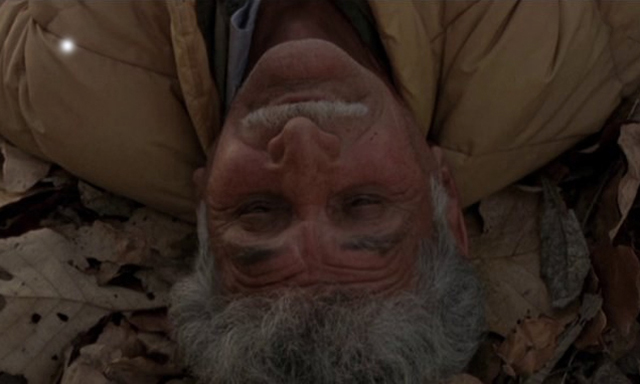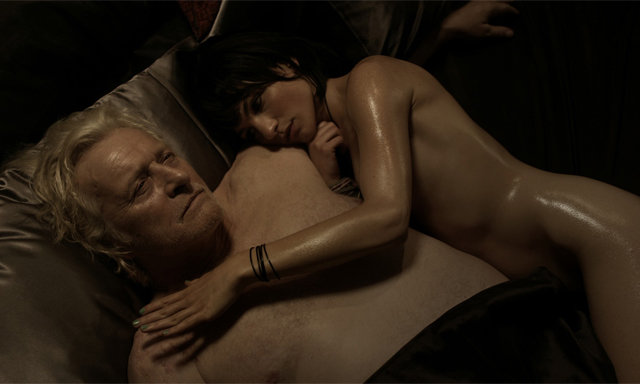I’ve written before in this column in defense of slow film, talking specifically about the need for surrender when we engage with art that is produced at a different pace and rhythm to that of our accelerated lives.
But the truth is that the films I’m defending – usually at the Durban International Film Festival, the only occasion when such films get much of a run in Durban – are, in relative terms, action-packed adventures compared to many of the films that are shown today on the global film festival circuit. At this year’s Rotterdam Film Festival, slowness was the order of the day, the word taking on a particularly glacial meaning as the daily activities of people from around the world were elevated to a position of significance that was not always justified.
Many of the films I watched at the festival – and also those that I review for the Durban Film Festival – occupied the increasingly blurry border between fiction and documentary, with non-actors playing roles that are nominally scripted. (Rotterman – unusual for a festival – doesn’t delineate between documentaries and fiction by placing doccies in their own discreet category). The result is a glut of ethnographic semi-narratives in we watch people go about their days, days filled with insignificant events supposedly made significant by the presence of a camera. These films are often, to be frank, fairly boring, although they are also just as often exquisitely made.
Some films stand out however and engage the viewer, while diverging only marginally from these parameters. The mexican film Penumbra, which tells of a traditional Mexican hunter’s attempt to track down and kill a semi-mythical deer, danced on the edge of disengagement but was ultimate gripping and very beautiful. The film follows aging woodsman Adelelmo Jiminez as he moves through the forest, setting up traps and searching for medicinal plants. Meanwhile, his wife Dolores, who has never fully recovered from the death of her son, stays at the homestead and goes about her daily tasks. The title of the film means half-shadow and director Eduardo Villaneuva shot the film in the hours between daylight and darkness. But the resulting half light also seems to echo the fact that the couple’s existence, like that of so many people who continue to subsist in rural conditions, is rapidly fading from view as modernity continues to spread its tentacles around the planet.
Ginger and Rosa, the new film from Sally Potter, is also a film about a changing world, although this time, its about the massive social changes that took place in post-war Europe. The film chronicles the changing relationship between the two adolescent girls of the title, with their coming-of-age marked by the threatening mood of the cold war and the embryonic anti-war movement. A moving and only slightly cynical portrait of the edge of liberalism and the fight for autonomy in a world dominated by the threat of destruction, Ginger and Rosa is a crisp and carefully controlled film whose emotional heart is made all the stronger by the distance from which Potter views her protagonists.
Il Futuro is a small, left-field gem from Chilean director Alicia Scherson. Starring Rutger Hauer, whose own unlikely career is echoed in that of the character he plays, the film tells the story of Bianca and Tomas, two teenagers living in Rome who are left alone after the death of their parents in a car accident. Bianca is old enough to look after the both of them and social services allow them to carry on with their lives. But without the presence of their parents, the two young people are more than a little lost. When Tomas befriends two older boys from the local gym, they move in with him and Bianca, and take on the roles of surrogate parents. But when they persuade Bianca to work as a ‘female companion’ for aging movie star Maciste (Hauer) who is thought to have a stash of money hidden in his rambling house, everything changes. Filled with superb performances, Il Futuro is a deeply evocative film that perfectly captures the liminal space between adolescence and adulthood.
It Felt Like Love was another slow film, although its carefully controlled pace lifted it above the throng of observational cinema that dominated Rotterdam 2013. Director Eliza Hittman has made a remarkably restrained film about adolescent sexual desire. Set against the landscape of working class Brooklyn, the film introduces us to the sullent but emotionally vulnerable 14-year-old Lila, who, inspired by the heavy petting sessions she watches between her best friend Chiara and Chiara’s boyfriend Patrick, decides that she wants to lose her virginity. Lila becomes fixated with an older boy, and encouraged by the mere fact that he returns her SMSs, tries to insinuate herself into his life. The result, like so many other films at Rotterdam is more of a mood piece than a conventional narrative, but Hittman’s use of emotional precision, moody visuals and carefully calibrated sound design illustrates the crucial difference between actually making an engaging film and just allowing the camera to sit there in uninvolved silence.


